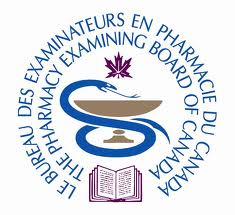to be hospital pharmacist 5
Please bear in mind that you will be working in a pharmacy department
and there are security issues with this. Although it may not be obvious to you,
may want to get into the department and remove items. This means that, as
an employee, you have a duty to uphold the security of the department, which
means wearing and displaying your own ID badge at all times (which you
should have received when you first start) and reporting your lost ID badge if
it is ever lost or stolen. In addition, whenever you enter or leave the department,
be careful for whom you are holding the door open – if you do not
know who the person is you need to challenge him or her. If an unknown
person gains entry to the pharmacy department there are implications in terms of the safety and security of the staff and the products held securely
inside the department.
Get to know the people with whom you are to work. It is likely that you
will be introduced to a vast number of new faces at the start, and you will
probably forget many. Try to be as friendly and open as possible and not too
overwhelmed. You will meet a whole range of pharmacy and non-pharmacy
staff in those initial days. Other than fellow pre-regs, your closest colleagues
will be newly qualified pharmacists. You are probably in awe of these newly
qualified pharmacists, but remember that, a year ago, they were where you
are now, and they have been qualified as pharmacists only for a few weeks at
the most. They look like they know what they are doing, but believe us when
we say that they are as scared as you are – probably more so. There will also
be a whole raft of other people with whom you are to work. Try not to have
any preconceived ideas about what pharmacists, technicians and assistants
do, because you will probably be proved wrong.
Another thing to think about is the fact that you are not the only
‘student’ group in the hospital requiring training. You are fighting for
training with other student groups such as pre-registration trainee pharmacy
technicians (student technicians) and rotational staff rotating through the
area that you are in. Remember that the onus is on you to direct your training
and to make the most of your training experiences, so you may need to
be assertive at times because pre-reg training is not uppermost in most
people’s minds. Those of you who have had some work experience in hospital
pharmacies may have experienced this already.
Try to join in with any social activities that are planned, however
daunting this may be to a new starter like yourself! You will generally find
that it is easier to work with people if you have socialised with them on some
level outside work, although bear in mind that, if you do socialise with work
mates, you should avoid doing anything too embarrassing because you have
to face everyone at work the next day and may have given a bad first
impression of yourself!
When you start your training, you are provided with RPSGB preregistration
training folders. Do yourself a favour and read through them!
These folders contain almost everything that there is to know about the year
and have some useful activities for you to do as you go through the year. They
contain official paperwork, such as the learning contract and the progress
reviews, as well as the pre-registration training byelaws; for those of you who
like to test yourselves they also have a sample registration exam paper. The
earlier that you get to grips with what is required, the earlier you can start to
demonstrate to your tutor that you are competent.Please be aware that much of the information in the folder is geared towards single community pharmacist pre-reg tutors. Your tutor will have
thought many of the preparatory exercises through before you get there. For
instance, you probably do not need to think too much about what activities
you need to do to show competency in certain performance standards,
because it is likely that, in a hospital environment, your rotations through
different sections of pharmacy easily allow you to demonstrate different
performance standards while performing particular duties. During induction,
your tutor should make it clear to what parts of the folder you should
pay particular attention.
Every hospital trust is part of a pre-registration region and you will be
required to attend regional study days. These are an opportunity for you to
have some study days away from your workplace on subject areas that
complement your work-based training. These study days are generally spread
out throughout the pre-registration training year and every region has its own
specific programme. Please note that, as the programme is regional, the order
in which the study days happen may not coincide with the order in which you
undertake your rotations, but pay close attention, because sooner or later the
learning in the regional study days should become useful to you.
Use the regional study days to make friends with other pre-regs from
other hospitals, and to meet up with your university friends. These study days
are good for networking and comparing and contrasting what you are doing
with what others are doing in other hospitals. This may give you a voice if you
find that your experience in your hospital does not compare well with what
other pre-regs in other hospital sites are doing. On the flipside, you may take
some comfort in the fact that you are all in the same boat and have the same
difficulties wherever you are doing your training.



Comments